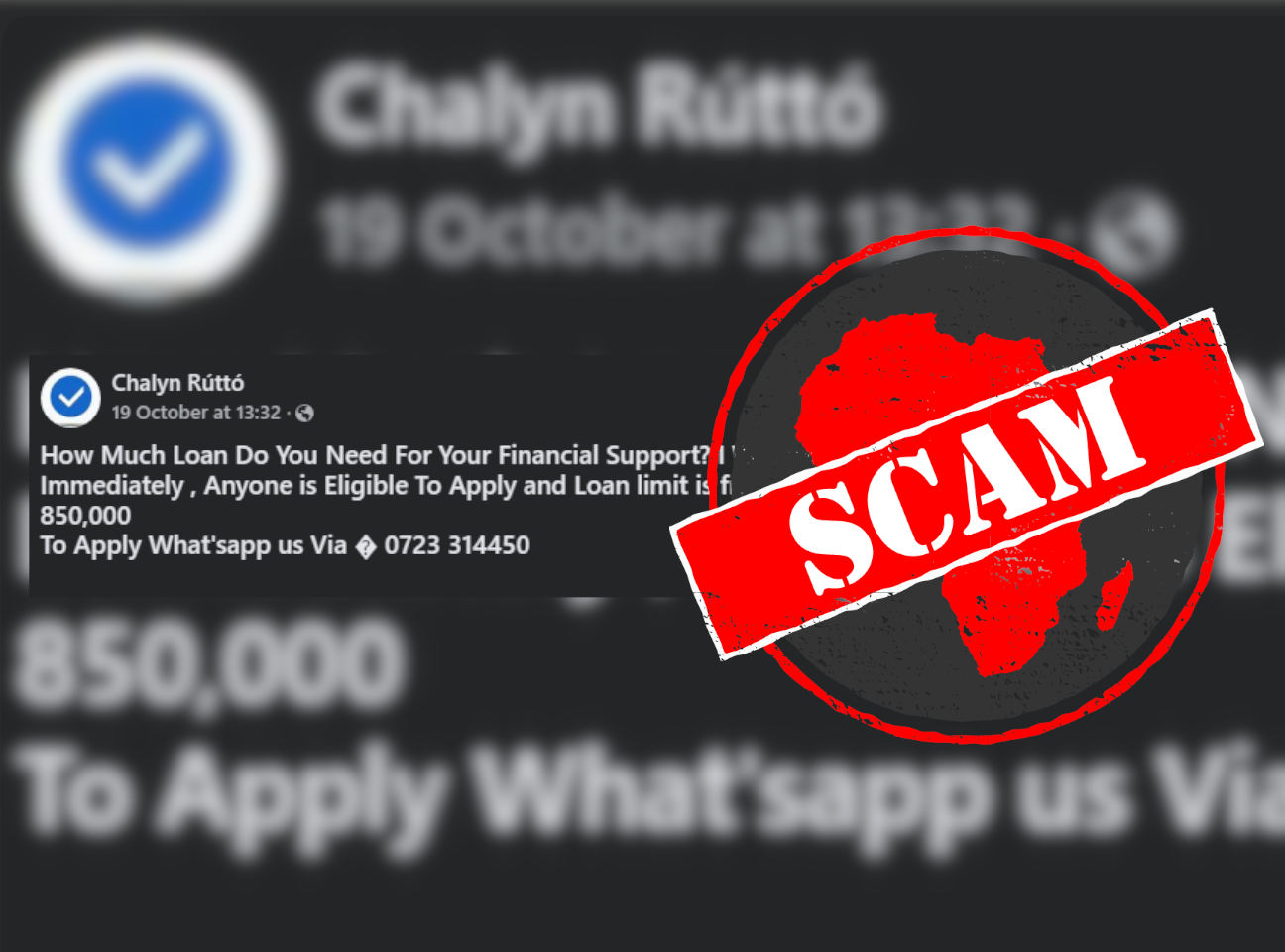IN SHORT: A Facebook page using the name and photos of Charlene Ruto, the daughter of Kenya’s president William Ruto, offers loans to Kenyans on Facebook. But it’s run by an imposter.
The Facebook page Chalyn Rúttó is advertising different kinds of loans on Facebook groups with thousands of members.
The page uses the name and photos of Charlene Ruto, the daughter of Kenyan president William Ruto.
It claims to be offering loans for business, school fees, rent, emergency and agriculture. It requires users to apply through the WhatsApp number provided.
The offers have been posted on multiple Facebook groups here, here, here, here, here, here, here, here, here and here.
The account’s posts have attracted hundreds of inquiries. But are they genuine offers? We checked.

Imposter page
The page’s misspelling of Ruto’s name is the first red flag. Her name is Charlene Ruto and not “Chalyn Rúttó”.
Africa Check noted that there is little activity on the page’s timeline but it has posted on numerous Facebook groups. Little to no activity on a Facebook page's timeline is usually a sign that it is suspicious.
To confirm if the WhatsApp number provided is registered to Ruto, we tried sending money to it. We found it is instead registered to “Chris Wepukhulu”. This is another clear sign that these promotions are not run by the president’s daughter.
Her official Facebook page is Charlene Ruto and carries the “blue tick” verification badge that the platform uses to let people know a page or profile is authentic.
It has over 56,000 followers and there are no promotions or loan offers on this page.
The page Chalyn Rúttó is fake and its offers are a scam.
For more help in identifying fraudsters on social media, read our guide to Facebook scams and how to spot them.
Republish our content for free
For publishers: what to do if your post is rated false
A fact-checker has rated your Facebook or Instagram post as “false”, “altered”, “partly false” or “missing context”. This could have serious consequences. What do you do?
Click on our guide for the steps you should follow.
Publishers guideAfrica Check teams up with Facebook
Africa Check is a partner in Meta's third-party fact-checking programme to help stop the spread of false information on social media.
The content we rate as “false” will be downgraded on Facebook and Instagram. This means fewer people will see it.
You can also help identify false information on Facebook. This guide explains how.




Add new comment